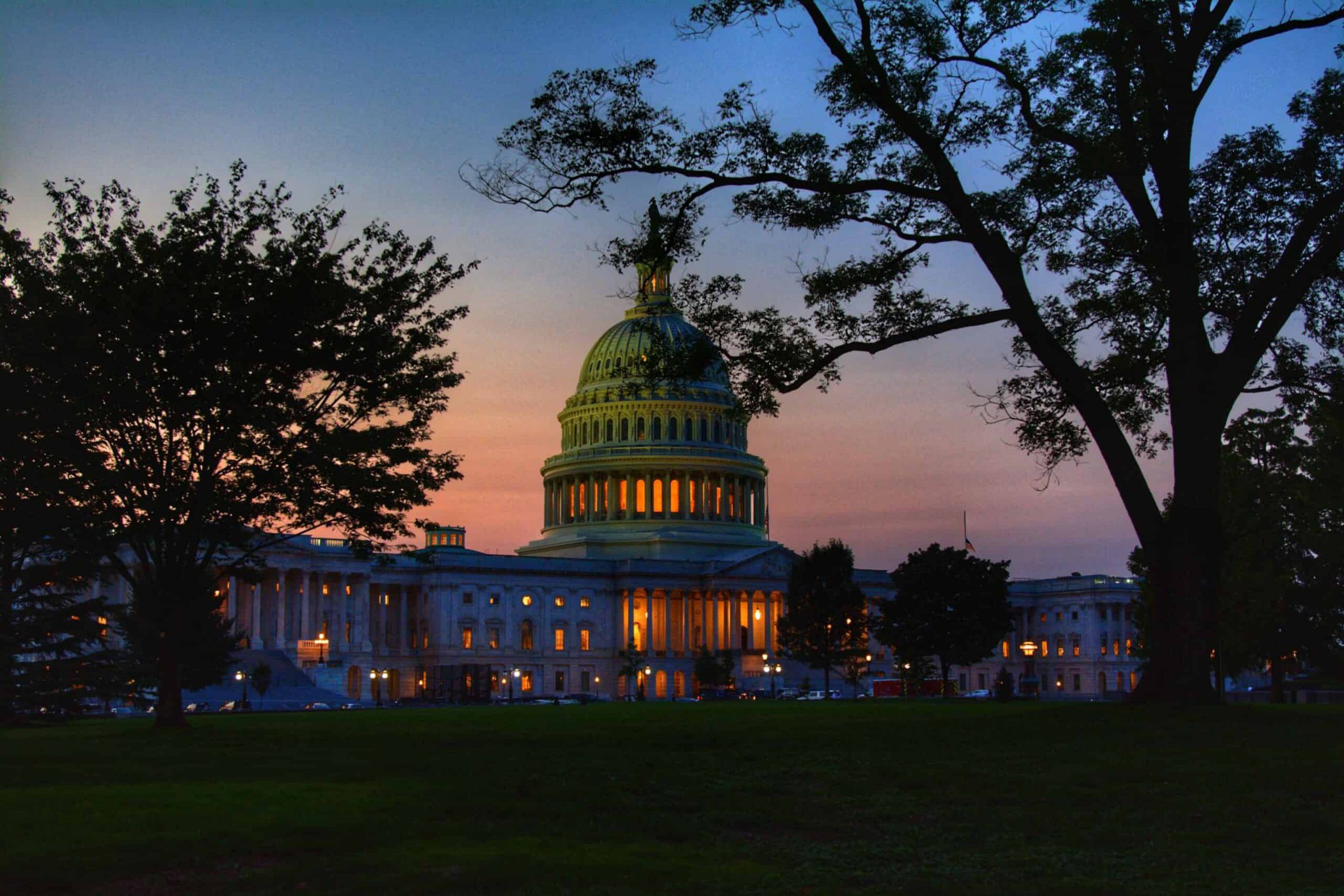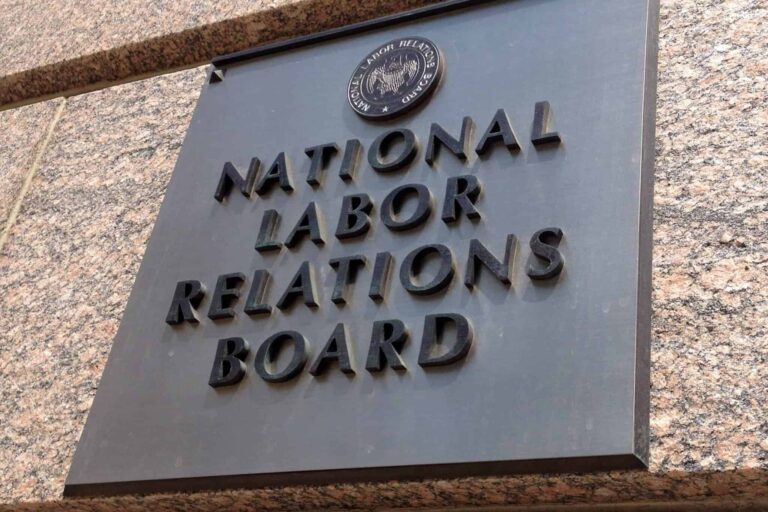
Naomi Schoenbaum is the William Wallace Kirkpatrick Dean’s Research Professor of Law at the George Washington University Law School.
In the year since the Supreme Court issued a huge blow to sex equality with Dobbs v. Jackson Women’s Health Organization, headlines have been more likely to warn of a war on women than to sound a note of progress on women’s rights. So it might be surprising to learn that 2022 brought four new federal protections for women’s rights in the workplace. These advances coming in the year of Dobbs are just one of the unexpected aspects of these new laws (more on them in a minute), including why so many Republicans supported what would seem like a feminist wish list, why Democrats stalled and jeopardized one of these laws, and why so little fanfare has surrounded the legislation. Buckle up, dear readers, as I try to unravel these puzzles for you, with a warning that what follows contains a hefty dose of speculation. Before doing so, it’s important to note that while the laws discussed here are often tagged as women’s rights, the matters they address—pregnancy, breastfeeding, and sexual harassment—affect people of all genders.
First, the laws. The Pregnant Workers Fairness Act (PWFA) requires employers to provide reasonable accommodations to workers who are pregnant or have related medical conditions, such as infertility or postpartum depression. With the PWFA, covered workers are entitled to flexibility on the job—ranging from measures like a stool to sit on to a temporary reassignment—so long as the needed accommodation does not impose an undue hardship on the employer.
The Providing Urgent Maternal Protections for Nursing Mothers Act (PUMP Act) expands rights around expressing breastmilk at work. An earlier law provided reasonable break time and a private place to pump but had several shortcomings. The PUMP Act closes these loopholes by extending these rights to a broader swath of workers and tightening up the law’s enforcement mechanisms.
Two other laws remove roadblocks that can stand in the way of enforcing sexual harassment law. The Ending Forced Arbitration of Sexual Assault and Sexual Harassment Act (EFASASHA) bars employers from requiring employees to resolve claims of sexual harassment in private arbitration rather than bring them in court. The legislation prohibits only pre-dispute arbitration agreements, that is, those agreed to before the harassment occurs. The Speak Out Act bans the use of non-disclosure agreements in sexual harassment cases before a dispute arises. Together, these laws mean that employers can’t force employees to sign away important rights related to potential sexual harassment claims when they are hired.
The first puzzling feature of these laws is their robust bipartisan backing. The two sexual harassment laws passed by voice votes in the Senate, and with Senators Lindsey Graham (R-SC) and Chuck Grassley (R-Iowa), two vocal Trump supporters, each sponsoring one of these laws. The PWFA counted nearly half of Republican senators among its supporters, while the PUMP Act had only five Republican senators objecting. In an era of polarization in Congress, we have rarely seen lawmakers crossing the aisle so much, let alone on a charged issue like women’s rights.
As I’ve written, Republicans and Democrats coming together on some women’s issues is not as surprising as it first seems. When it comes to care, a number of interests align what would otherwise be strange bedfellows. Accommodations that make motherhood and work more compatible like those offered by the PWFA and Pump Act are, to quote Senator Bill Cassidy, Republican co-sponsor of the PWFA: “pro-family, pro-mother, pro-baby, pro-employer, and pro-economy.” Republican backing for a law that could reduce the need for abortions and increase labor supply is no great leap. On sexual harassment, greater protection from the “particularly heinous” sexual misconduct that was the focus of the #MeToo movement could appeal to those across the political spectrum. Support from prominent Republican figures, like Gretchen Carlson of Fox News, conferred conservative credibility, and the modest nature of these laws—applying only before a dispute arises—made it easy for Republicans to sign on.
It may also be no coincidence that three of these laws (the PWFA, Pump Act, and Speak Out Act) passed in the wake of Dobbs. With abortion access now restricted in many states, women will increasingly confront the challenge of juggling work with pregnancy and childcare. Republicans have faced mounting pressure to help women in general and women at work in particular. Whether it’s these realities or the fear of electoral consequences with voters angry about Roe’s reversal, Republican lawmakers may have been moved by Dobbs.
But Dobbs complicates the politics of laws like these, which might help to explain some of the mysteries surrounding them. Dobbs puts Democrats in an uncomfortable position on women’s rights. In a world after Roe, Democrats don’t want to let Republicans score any points for supporting women. And Democrats themselves don’t want to seem clueless on women’s rights. News outlets have reported that Senate Majority Leader Chuck Schumer delayed a vote on the PWFA both to deny Republicans a win with women and to avoid the appearance that the law was Democrats’ response to Dobbs. Evidencing the upside-down nature of these politics is a press release from the ACLU crediting a Republican backer of the PWFA while chastising Democratic leadership.
This Dobbs effect is worrying. Bipartisanship was one of the key strategies behind the success of the PWFA. And bipartisanship presents a further opportunity on women’s rights, with parts of the Republican party getting behind the state’s role in supporting care to make work and family more compatible. If bipartisanship makes it harder and not easier to expand women’s rights after Dobbs, this does not portend well for the future of women at work or anywhere else.
Dobbs may also mute coverage of these laws by complicating the story of progress that their passage would otherwise tell. Consider that the New York Times has been at the center of the decade-long effort to pass the PWFA, with an op-ed in its pages kicking off the law’s campaign, and extensive reporting on pregnancy discrimination galvanizing efforts to bring the law into effect. Yet the Times said not a peep about the law until six months after it passed. If Dobbs is at work, it may not only limit news on laws like the PWFA but inhibit a narrative around these laws and women’s place in the workplace.
With some commentators detecting more than a whiff of feminist malaise, especially among young women, this media effect is concerning. The passage of laws like the PWFA, the PUMP Act, EFASASHA, and the Speak Out Act is due in no small part to years of feminist agitation, from women’s rights organizations to social movements like #MeToo. If these successes aren’t credited, it will be no wonder that young women don’t see much reason to align with feminism.
As for the future of women’s rights at work in the era of Dobbs, only time will tell. We still don’t know whether the effect of Dobbs will fade or be more lasting: how long will every victory remain a reminder of defeat? While we wait, supporters of women’s rights will just have to keep doing what we’ve always done—persist.










Daily News & Commentary
Start your day with our roundup of the latest labor developments. See all
April 26
Starbucks and Workers United resume bargaining talks; Amazon is ordered to disclose records; Alabamians support UAW’s unionization efforts.
April 25
FTC bans noncompete agreements; DOL increases overtime pay eligibility; and Labor Caucus urges JetBlue remain neutral to unionization efforts.
April 24
Workers in Montreal organize the first Amazon warehouse union in Canada and Fordham Graduate Student Workers reach a tentative agreement with the university.
April 23
Supreme Court hears cases about 10(j) injunctions and forced arbitration; workers increasingly strike before earning first union contract
April 22
DOL and EEOC beat the buzzer; Striking journalists get big NLRB news
April 21
Historic unionization at Volkswagen's Chattanooga plant; DOL cracks down on child labor; NY passes tax credit for journalists' salaries.